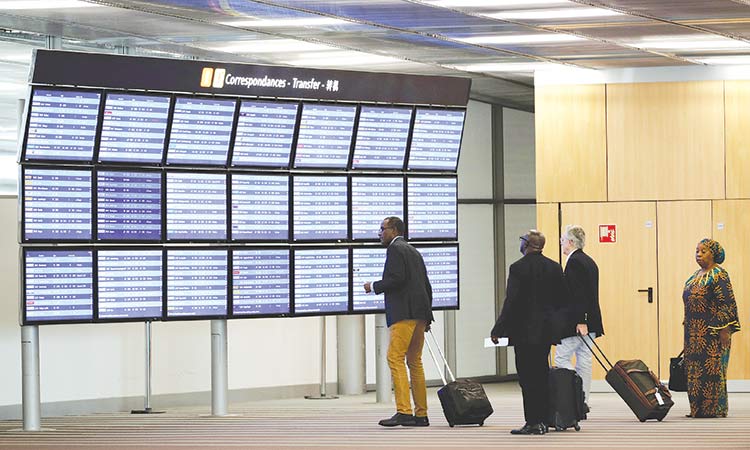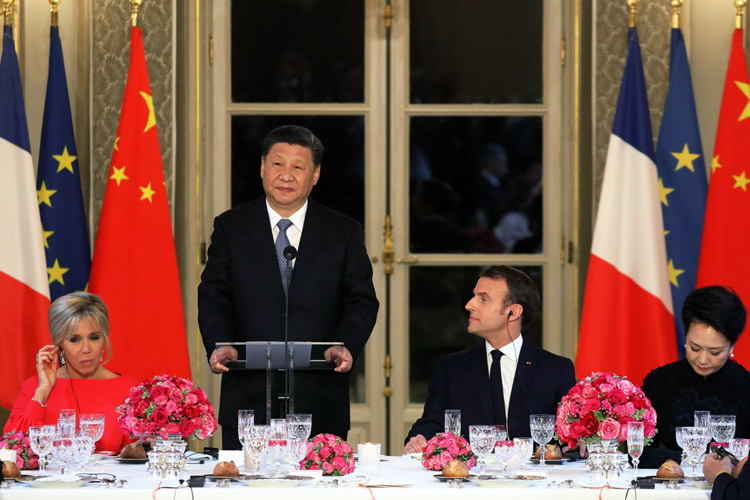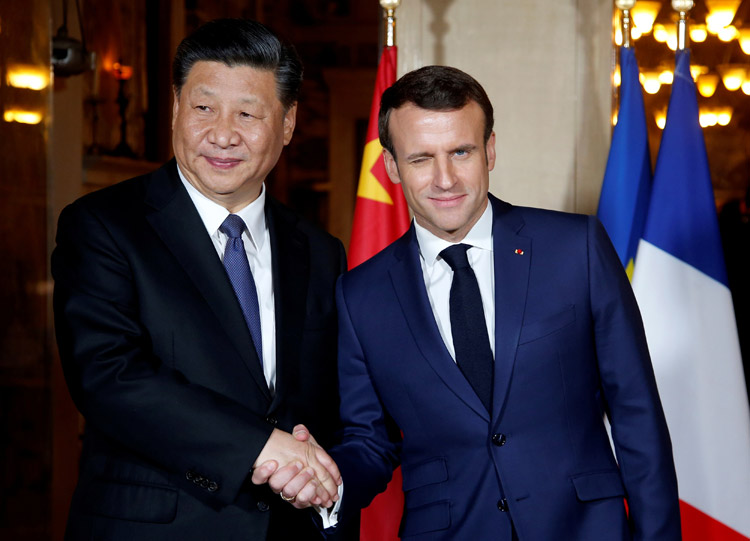France to tax flights from its airports, airline stocks decline

Passengers look at a flight information board at an airport in Roissy, France. Reuters
Shares in airlines across Europe fell on the news, with Air France down 5.2%, Ryanair down 4.8%, easyJet down 4% and Lufthansa down nearly 3%.
However, activists said the new tax was unlikely to change consumer behaviour at the proposed levels and was low compared with other countries. Brussels-based NGO Transport and Environment (T&E) estimates airline taxes raise about 1 billion euros per year in Germany and more than 3 billion in Britain.
The new French tax will be 1.5 euros for flights within France or the European Union, 3 euros for economy flights out of the EU, 9 euros for intra-EU business class and up to 18 euros for business class tickets out of the EU. Transit flights will not be taxed.
“We have decided to put in place an eco-tax on all flights from France,” Transport Minister Elisabeth Borne told a news conference, adding proceeds would be used to finance daily transport in France, notably local trains.
The French government also said that from 2020 it expected to raise 140 million euros from reducing tax benefits on diesel for trucks.
“The government is finally targeting tax breaks for the most polluting industries such as trucking and airlines, but these modest measures will not significantly reduce greenhouse gas emissions,” said Climate Action Network’s Lorelei Limousin.
Limousin said tax exemptions for jet plane kerosene fuel cost French taxpayers more than 3.7 billion euros per year.
But she welcomed the fact France was taking action at home, rather than waiting for an EU-wide initiative on airline tax.
France said last month it wanted the new European Commission to push for an end to global tax exemptions for jet fuel to reduce CO2 emissions. It has also linked up with the Netherlands to try to convince fellow European nations to tax airline travel more.
Air France said the new tax would significantly hurt its competitiveness and represent an additional cost of over 60 million euros per year.
It said 50% of its flights were operated out of France, notably for its domestic network, where losses amounted to more than 180 million euros in 2018.
French President Emmanuel Macron’s government has said it wants to put the environment at the centre of its policies, but late last year it abandoned an attempt to increase tax on diesel fuel following the “yellow vest” protest movement.
Andrew Murphy, air travel specialist at T&E, said the new policy was “a more equitable tax. Driving a car is often unavoidable, but frequent flyers tend to be wealthy urbanites,” he said.
French carrier Air France said it was against the government’s plan to introduce an ecological tax on air transport, saying the measure would significantly penalise its competitiveness.
The government announced earlier on Tuesday that it will introduce the eco-tax on airlines flying out of France, which is expected to raise around 180 million euros ($201.69 million) from 2020.
“This tax would represent an additional cost of over 60 million euros per year for the Air France group,” the company said in a statement.
It said 50% of its flights were operated out of France, notably for its domestic network, where losses amounted to over 180 million euros in 2018.
Meanwhile, the head of the Eurogroup of eurozone finance ministers is proposing to revive talks on a plan to pool the debt of eurozone countries, three EU sources told Reuters on Tuesday, in a bid to reduce the shortage of triple-A rated bonds in the bloc. The plan aims to overcome opposition to the idea of a eurozone safe asset by offering reluctant states the prospect of making government bond holdings more expensive for banks - thus limiting their exposure.
The proposal by Eurogroup President Mario Centeno was received “with caution” by finance ministers at a meeting on Monday, the sources said.
A persistent shortage of triple-A rated bonds has kept momentum for a pooled eurozone sovereign bond alive despite opposition from Germany. The euro zone’s largest economy has so far rejected any proposal that could potentially leave its taxpayers on the hook for the debts of other countries.
At Monday’s meeting, Centeno proposed to set up three working groups to address contentious issues that have so far prevented a reform of the euro zone, officials said, suggesting they conclude their work by December.
One group would focus on the “Regulatory Treatment of Sovereign Exposures”, the officials said. Debt of euro zone countries is currently considered risk-free - favourable treatment compared with other securities that has encouraged banks to pile up sovereign bonds in their balance sheets.
Reuters







